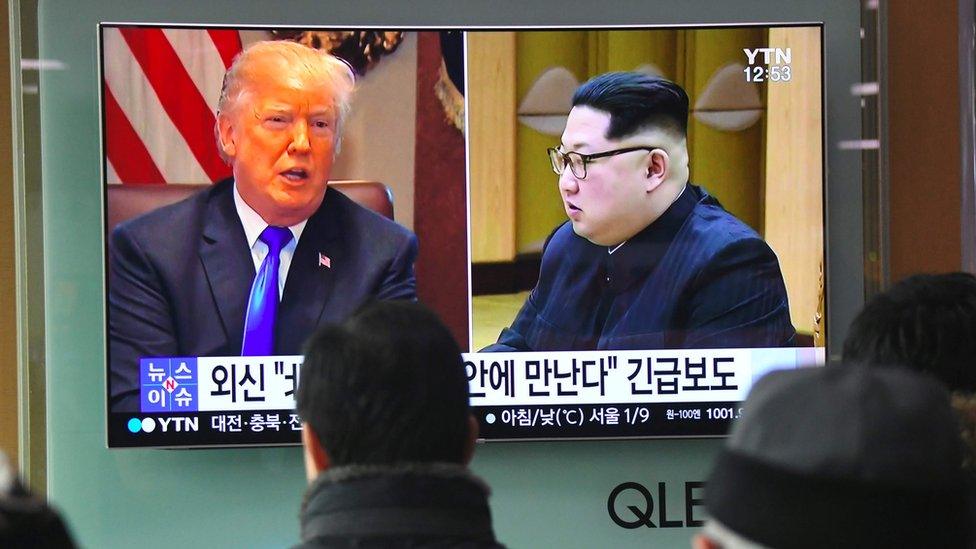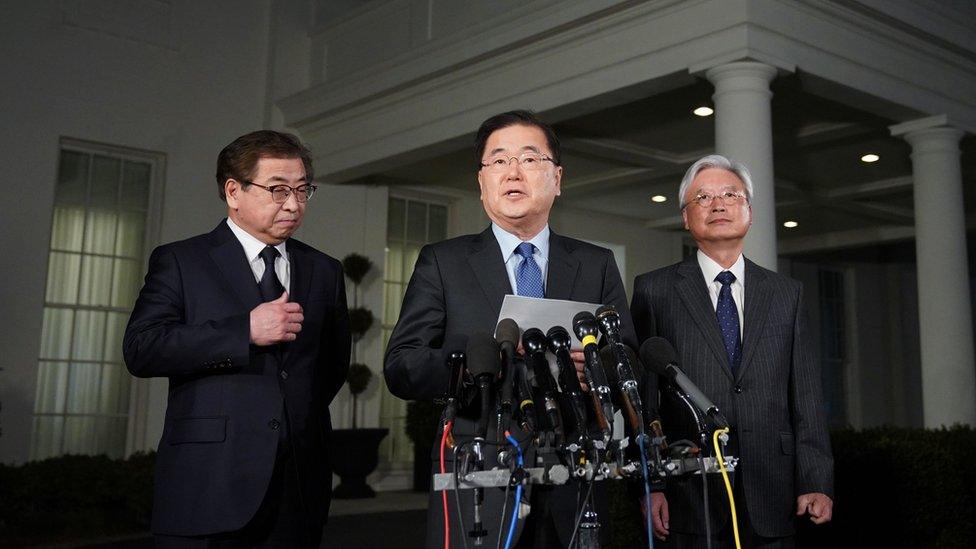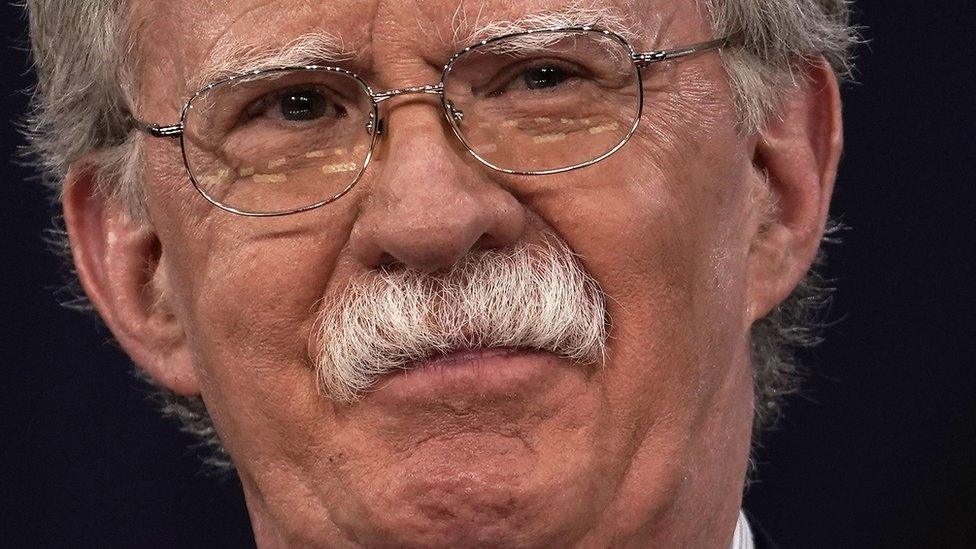Is Trump ready for talks with North Korea?
- Published

Never before has a US president prepared for a summit of this importance - with so few people and in such a short time. What could possibly go wrong?
President Donald Trump is planning to meet Kim Jong-un, the North Korean leader, by the end of May. The meeting - if it takes place - would be unprecedented: no US president serving in office has ever negotiated directly with a North Korean leader.
It's a dramatic shift in policy - technically the two countries are still at war. The Korean War ended in 1953 not with a peace treaty, but an armistice.
Under the Trump administration, the relationship's been especially tense. Trump has threatened to destroy North Korea, deriding its leader as "Rocket Man". Kim said Trump was "mentally deranged".
Things have changed. This week Trump tweeted, external: "Look forward to our meeting!" At the summit, the president plans to talk about denuclearising North Korea. Yet the preparations - and what the president hopes to achieve - remain murky.
Donald Trump and Kim Jong-un: From enemies to frenemies
At times it's not clear whether it will actually happen. White House press secretary Sarah Huckabee Sanders has said they're making plans for the summit but adds, "we still don't have a set time or date".
Nor do they have a meeting place - though there's speculation. The two leaders could get together in the demilitarised zone - Panmunjom has facilities for meetings. Another possibility is Jeju Island, South Korea, which might seem safer for the president.
"There's great hope in the Oval Office" about the summit, an administration official told me. The president wants the North Koreans to relinquish their ability to build nuclear weapons. So do those who live in the region.
White House chief of staff John Kelly says the president speaks on the phone regularly with President Moon Jae-in of South Korea, President Xi Jinping of China and Shinzo Abe, Prime Minister of Japan.

The South Korean officials announced the invitation in front of the West Wing
With Abe, the president's calls are long, according to individuals who know the prime minister. They are expected to talk more about the summit on 18 April, when Abe makes a visit to Washington.
Speaking to me on background, administration officials say they've been consulting with their South Korean counterparts about security issues. In addition, according to the New York Times, external, US officials have asked North Koreans what might be on the table for the summit.
Here in Washington, though, key players haven't even started their jobs. John Bolton, Trump's new pick for national security adviser, reports for duty on 9 April. Mike Pompeo, the president's choice to replace Rex Tillerson as Secretary of State, hasn't been confirmed.
Trump and his aides are acutely aware of the stakes. Kelly says he's worked hard to ensure diplomacy - rather than a military strike - is seen as the best response to Pyongyang. He's a retired general, and his office is filled with reminders of prior conflicts, including a book of Civil War paintings.
Analysts are pessimistic about the summit, however, and wonder aloud if the president has a strategy. Eric Altbach, who served on the National Security Council under President George W Bush and has negotiated with the North Koreans, says he'd begin getting ready months - even years - before meetings with Pyongyang officials.
In previous negotiations, he says, preparations were "meticulous and painstaking". After a "crescendo" of interagency meetings and discussions with North Korean officials, the outcomes for the summit would be agreed upon in advance.
These kinds of summits are symbolic: the president signs a deal finalised between the two countries beforehand.
Yet with Trump, meetings are unpredictable.
It's not clear how much he knows about North Korea's nuclear programme. Sometimes he apparently wings it. The Washington Post, external has reported Trump said he made up facts while talking to Prime Minister Justin Trudeau.

John Bolton will not start his job in the White House until 9 April
For these reasons, says Altbach, the summit may be a disappointment.
"I don't think we can expect a very detailed or comprehensive framework for denuclearisation," he says.
"The best that we would hope for is a broad set of objectives."
Meanwhile, the White House can expect the other side to be prepared.
"This is the most important issue for North Koreans - bar none," Altbach says. And many of the North Korean officials have been at the negotiation table with Americans before.
"You have this sort of extreme focus and a lot of experience," he says.
Trump and his aides appear to have done only minimal prep work - and know less about nuclear negotiations.
Evan Medeiros, who served as a senior director for Asia in the Obama administration, says he doesn't think Trump will achieve much at the summit.
Still, he says: "The alternatives are so awful that everyone's willing to give it a shot."